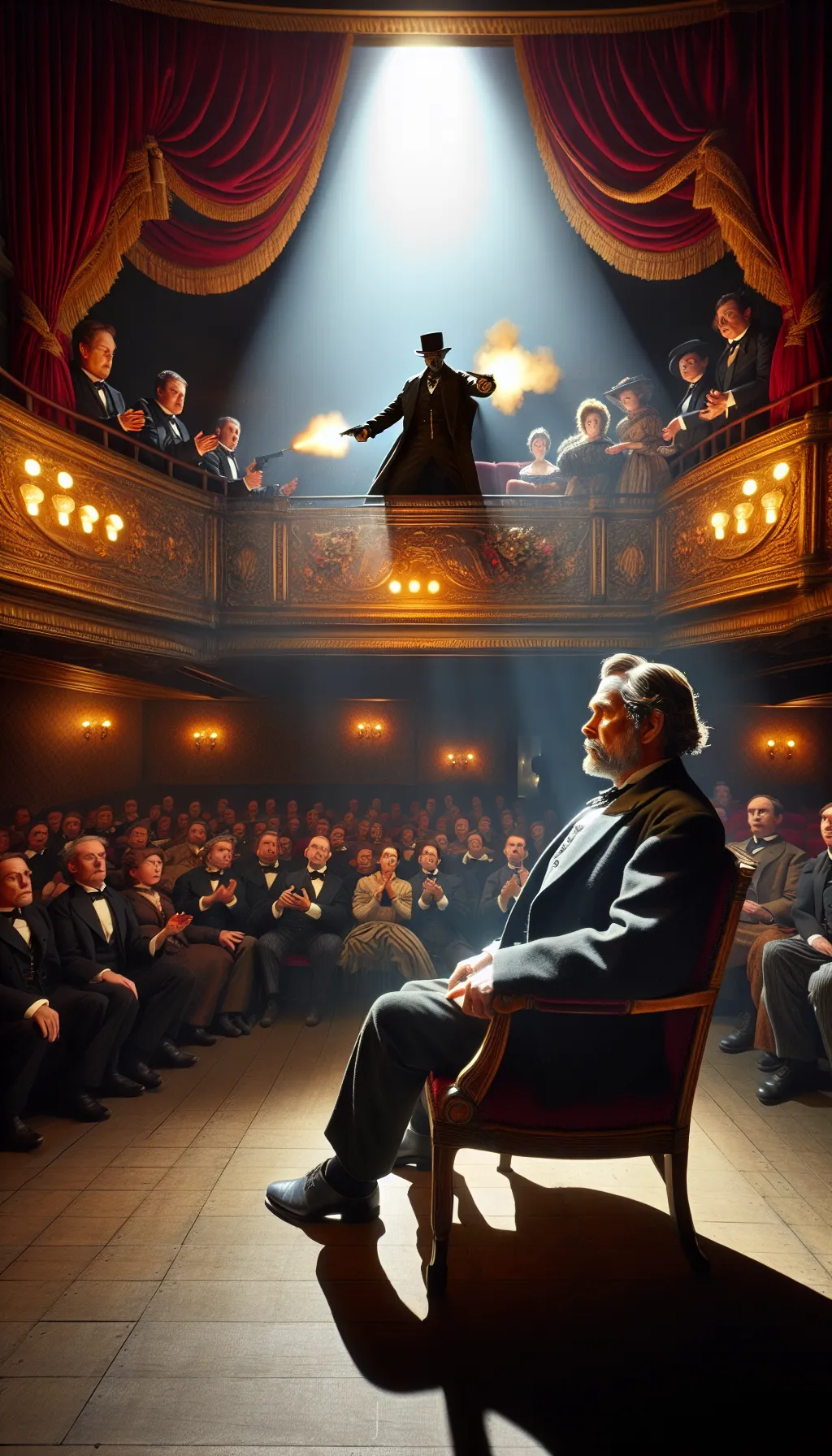United States – The Night the Nation Wept – April 14, 1865
TLDR;
- Event: President Abraham Lincoln was assassinated by John Wilkes Booth on April 14, 1865, at Ford’s Theatre during a play.
- Impact: Lincoln’s death the next morning plunged the nation into mourning and marked a turning point in American history, affecting Reconstruction policies.
- Aftermath: Booth’s act, intended to revive the Confederate cause, instead led to stricter Reconstruction policies under Andrew Johnson and prolonged racial tensions.
- Legacy: Lincoln’s assassination is remembered as a pivotal moment that tested the nation’s resilience and altered its post-Civil War trajectory.
–
Story
The laughter and applause echoed through Ford’s Theatre as the audience reveled in the comedic play, ‘Our American Cousin.’ But in an instant, the joyous atmosphere turned to horror. A single gunshot rang out, and President Abraham Lincoln slumped forward in his seat, mortally wounded by the infamous actor and Confederate sympathizer, John Wilkes Booth.

The Civil War had just drawn to a close, and the nation was beginning to heal from its deep wounds. President Lincoln, a beacon of hope and unity, had led the country through its darkest days. His vision for a united America was finally within reach. But on that fateful night, Booth’s bullet shattered not only the peace of the theater but the heart of a nation.
Booth, a well-known actor, had meticulously planned the assassination, believing it would revive the Confederate cause. He leaped onto the stage, brandishing a dagger, and shouted, ‘Sic semper tyrannis!’—’Thus always to tyrants!’—and some witnesses reported he added, ‘The South is avenged!’ before fleeing into the night.
The turning point came the following morning, as the nation awoke to the devastating news: President Lincoln, carried across the street to the Petersen House, remained in a coma until his death at 7:22 AM on April 15, 1865. The first president to be assassinated, Lincoln’s death sent shockwaves across the country, plunging it into mourning and uncertainty.
Lincoln’s death marked a pivotal moment in American history, altering the course of Reconstruction. His more lenient approach (outlined in his 10% Plan) was replaced by the stricter policies of Andrew Johnson, leading to conflicts with Radical Republicans and prolonged racial tensions in the South. His assassination was not just the end of a life but the beginning of a new chapter in the American story, one that would test the resilience and resolve of a nation.
–
| Would a different security detail have changed the course of history? |